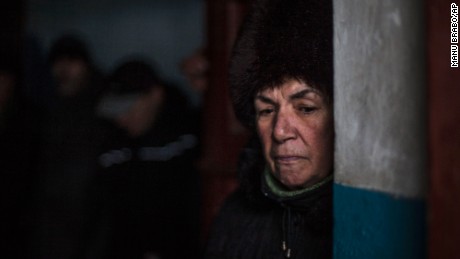Diva Juliana Kanyomozi has lately been known for her singing
proficiency until recently when she landed an acting deal with a popular
TV station
The singer is set to feature in the famous TV series Deception which was premiered for the fifth season a few weeks back.
She has been added on the cast with fellow celebrity and comedian Patrick Idringi also known as Salvador.
Juliana who was on a musical break recently, is making a tremendous
comeback after several projects have been put on the line up from her
camp.
She is soon releasing her single titled Woman whose video was shot at Savy Films by the famous video producer Sasha Vybz.
She also recorded a song with Radio and Weasel recently, something that is highly anticipated by the fans of both camps.
RIYADH, SAUDI ARABIA
Saudi
Arabia's elderly King Abdullah died on Friday and was replaced by his
brother Salman as the ruler of the world's top oil exporter and the
spiritual home of Islam.
The royal court said in a
statement that Abdullah, believed to be around 90 years old, died at
1:00 am local time (2200 GMT) on Friday, expressing its "great sadness
and mourning".
The late monarch's half brother Moqren was named crown prince, according to the statement.
Abdullah
will be buried later Friday following afternoon prayers, and citizens
would be invited to pledge allegiance to the new 79-year-old monarch and
the crown prince at the royal palace, the statement said.
Abdullah was hospitalised in December suffering from pneumonia and had been breathing with the aid of a tube.
Under
Abdullah, who took the throne in 2005, Saudi Arabia has been a key US
ally in the Arab world, most recently joining the US-led coalition
carrying out air strikes against the Islamic State group in Syria and
Iraq.
US President Barack Obama paid tribute to Abdullah as a valued ally.
"As
our countries worked together to confront many challenges, I always
valued King Abdullah's perspective and appreciated our genuine and warm
friendship," Obama said in a written statement.
"The closeness and strength of the partnership between our two countries is part of King Abdullah's legacy."
As
the top producer in the Organisation of the Petroleum Exporting
Countries, Saudi Arabia has been the driving force behind the cartel's
refusal in recent months to slash output to support plummeting oil
prices.
Oil surged following Abdullah's death, with US
benchmark West Texas Intermediate (WTI) for March delivery soaring as
much as 3.1 per cent in New York.
"The market is
probably uncertain over what the new king would do about this oversupply
issue," said Daniel Ang, an investment analyst with Phillip Futures in
Singapore.
BROTHER'S FOOTSTEPS
The
kingdom is also home to Islam's holiest sites, Mecca and Medina, and
its role as a spiritual leader for Sunni Muslims has seen it vying for
regional influence with Shiite-dominated Iran.
Salman,
the new king, is widely expected to follow closely in his brother's
footsteps, in foreign and energy policy as well as in making moderate
reforms to the deeply conservative kingdom.
Abdullah
pushed through cautious changes while in power, challenging
conservatives with moves such as including women in the Shura Council,
an advisory body.
He promoted the kingdom's economic
development and oversaw its accession to the World Trade Organisation,
tapping into the country's massive oil wealth to build new economic
cities, universities and high-speed railways.
But the
kingdom is still strongly criticised for a dismal human rights record,
including the imprisonment of dissidents. Saudi Arabia is also the only
country in the world that does not allow women to drive.
Salman is a stalwart of the royal family credited with transforming the capital Riyadh during his half-century as governor.

This handout file picture taken on
December 25, 2014 and released by the Saudi Press Agency (SPA) shows
Saudi Crown Prince Salman bin Abdulaziz chairing a cabinet session in
Riyadh to approve the state's budget for 2015. AFP PHOTO | HO | SPA
Recent
years have seen concerns over his health after operations on his back,
but Salman took on an increasingly high-profile role as Abdullah's own
health issues forced him from the limelight.
Abdullah named Moqren as deputy crown prince last March, in an unprecedented move aimed at smoothing succession hurdles.
Moqren
was a trusted confidant of Abdullah with a reputation as a liberal. A
former air force officer born in 1945, Moqren is the youngest son of
King Abdul Aziz bin Saud, the founder of Saudi Arabia.
Since King Abdul Aziz's death in 1952 the throne has systematically passed from one of his sons to another.
The streets of Riyadh were quiet following Abdullah's death but many Saudis turned to social media to mourn the king.
Abdullah
Saadoon, a member of the Shura Council and retired general, said
Abdullah had "laid the foundations of a blessed renaissance" in Saudi
Arabia.
Another Twitter user, Shaima, said: "We didn't lose a king, we all lost a father".
Government-owned Saudi-1 television showed only a repeat of the official announcement.
Entertainment
channels run by network MBC, which is privately owned by Sheikh Walid
al-Ibrahim, a member of the royal family, switched to the company's
Al-Arabiya news channel for continuous coverage of the king's death,
mostly featuring file footage of Abdullah and Salman.







